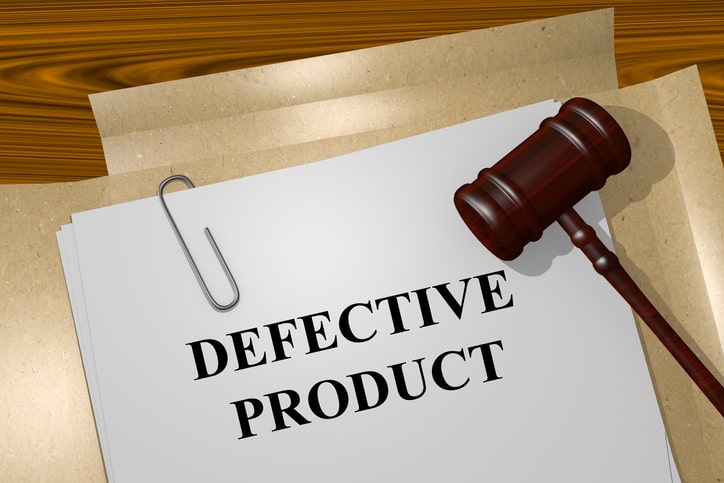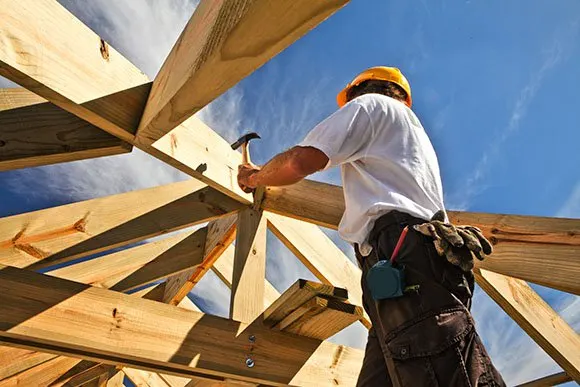Dashcams have recently become indispensable tools for drivers. It's like...
According to statistics compiled by the Occupational Safety and Health Administration (OSHA), the top four causes of construction fatalities are:
Falls
Struck-By
Electrocution
Caught-In/Caught-Between
In Nebraska, all illnesses and injuries suffered at work are the immediate province of the company’s workers’ compensation insurance, but when defective or damaged equipment is involved — and certainly when the result is a wrongful death — suits involving third parties and other legal actions may be available.
If you’re in the Omaha area, or in the counties of Douglas, Sarpy, Dodge, and Lancaster, and you or a loved one has suffered an injury at work, contact us at Harris & Associates, P.C., L.L.O. for a free consultation. We have more than four decades of experience handling personal injury claims.

OSHA’s “Fatal Four” comprise the leading causes of fatalities on construction sites.
Topping the list are falls at 36.5% of all fatalities. Falls result from unprotected sides and holes, improperly constructed or maintained walking and working surfaces, and from other improperly protected equipment and construction areas, including roofs, ladders, and scaffolding.
The second most common cause is being struck by an object due to swinging, falling, or misplaced objects. This category represents 10.1% of construction site deaths. Other causes include falling objects due to rigging failure, loose or shifting materials, equipment malfunctions, and vehicle or equipment strikes.
The third most common (8.6%) is electrocution, which can result from a variety of factors: exposed wiring, outlets exposed during wet conditions, overhead power lines, energized parts in electrical and equipment panels, poorly maintained extension cords or power equipment, or lightning strikes.
The final category is getting caught-in or caught-between at 2.5% of construction fatalities. Workers can be caught in or between machines, devices, or tools, caught between moving or rotating equipment, or involved in trench, excavation, or structure collapses.
The “Fatal Four” also figure prominently in OSHA’s top-10 causes of worker injuries. Topping the list is, once again, falls and fall protection, followed by hazard communication, scaffolding, respiratory protection, lockout/tagout violations, ladders, powered industrial trucks, machine guarding, inadequate fall protection training, and electrical-wiring violations.
OSHA has established standards for employers to follow to help avoid and prevent any of these incidents from happening.
As mentioned above, though workers’ compensation will cover work-related injuries in terms of medical expenses and lost wages, if defective equipment (or ill-maintained and therefore dangerous equipment) is involved, a product liability, or third-party, lawsuit can be initiated. A personal injury lawsuit can provide you with greater compensation as well as potentially cover your pain and suffering.
A product liability lawsuit can be sought if you can identify one of these three legally recognized defects:
DEFECT IN DESIGN: If a piece of equipment is poorly designed, then the manufacturer, and even the original designer, may be held liable. Examples include equipment that lacks proper safeguards to protect the user.
DEFECT IN MANUFACTURE: The original design may be fine, but something went wrong in the manufacturing process to render the product or equipment unsafe.
DEFECT IN MARKETING: This refers not to advertising and sales, but to the failure of the manufacturer or supplier to provide adequate warnings about potential dangers and/or adequate safety instructions for handling and operating the equipment.
If the construction company fails to adequately maintain its equipment and negligence can be shown, then the employer sometimes can be subject to a personal injury lawsuit as well. You need to consult with a knowledgeable attorney before filing a suit against your employer. Generally, if you accept a workers’ compensation settlement, you forfeit the right to sue your employer. If you suspect ill-maintained and dangerous equipment, call us immediately.
Workers’ compensation laws are designed to shield the employer from employee lawsuits due to injuries or illnesses suffered on the job. Workers’ compensation insurance is meant to be the exclusive remedy for workplace incidents, but there are a few generally recognized exceptions:
If the employer’s conduct is intentional or egregious. you must prove that the employer intentionally failed to maintain safe equipment or working conditions.
If you were injured by a toxic substance such as benzene, asbestos, silica, chromium compounds, radium, and other extremely toxic substances.
If a third party injures you: For instance, a coworker pushes you into a dangerous situation.
If faulty or defective equipment is to blame.
Once you accept workers’ compensation, you cannot sue your employer for personal injury. You need to contact us first if you feel your workplace or equipment were not maintained or followed mandated working safeguards before you accept workers’ comp.
Workers’ compensation laws do not shield third-party designers, manufacturers, and suppliers of equipment. You can potentially file for damages if defects in the product can be proven, but remember, you will have to go before a judge and often a jury to win your case. For that, you need experienced legal help.
Workers’ compensation does not cover anything beyond medical expenses and lost wages, and even then, not usually on a 100-percent scale. A personal injury lawsuit, if successful, can not only cover medical and wages but also compensate you for your pain and suffering.
Nebraska workers’ compensation law awards two-thirds of a fatally injured employee’s salary to the surviving spouse until he or she remarries. Surviving children are also entitled to death benefits. The insurance will also provide up to $6,000 for funeral expenses.
Can you sue if you feel those benefits don’t begin to compensate you fully for your loss of consortium and pain and suffering? Unfortunately, workers’ compensation law will shield the employer from being sued except for the few circumstances described above. In addition, Nebraska’s wrongful death laws do not recognize compensation for pain and suffering, only monetary losses.
Again, the only truly open avenue for bringing a wrongful death lawsuit resides in a product liability claim based on one of the three recognized defects described above. Injuries at a worksite involving dangerous or defective equipment can result in greater compensation than what workers’ compensation offers, but the catch lies in proving the intention/gross negligence of the construction site operator, or in finding a defect and suing the manufacturer or other third party.

If you or a loved one suffered an injury due to defective or dangerous equipment, contact our skilled team at Harris & Associates, P.C., L.L.O. immediately. We will consult with you, hear your story and circumstances, and advise you on the proper course of action. If you’re in the greater Omaha, Nebraska area, we’re ready to help you.